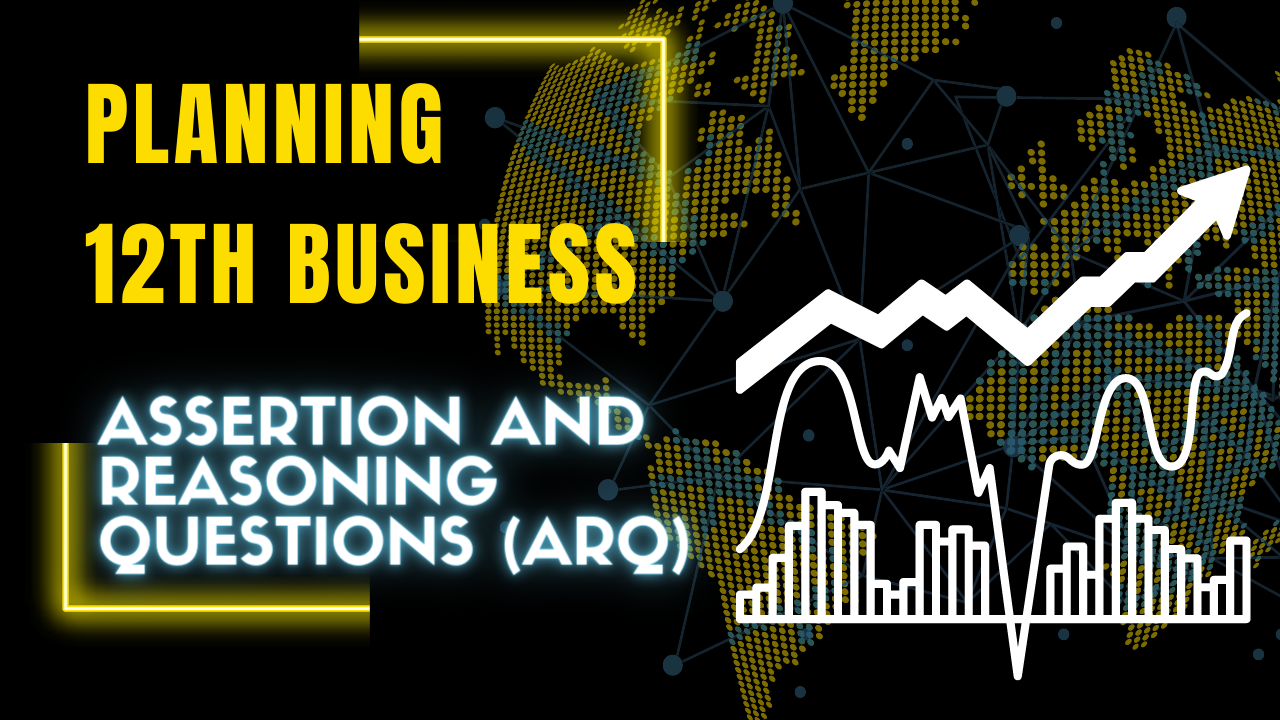4 Assertion (A): Planning will be a futile exercise if it is not acted upon or implemented.
Reason (R): Planning is time consuming and sometimes not much time is left for its
implementation.
(a) Both Assertion (A) and Reason (R) are true.
(b) Both Assertion (A) and Reason (R) are false.
(c) Assertion (A) is true and Reason(R) is false.
(d) Assertion (A) is false and Reason(R) is true.
5 Assertion (A): Planning does not reduce overlapping and wasteful activities.
Reason (R): Planning ensures clarity in thought and action, work is carried on smoothly
without interruptions.
(a) Both Assertion (A) and Reason (R) are true.
(b) Both Assertion (A) and Reason (R) are false.
(c) Assertion (A) is true and Reason(R) is false.
(d) Assertion (A) is false and Reason(R) is true.
6 Assertion (A): Planning is the most challenging activity for the management. Reason (R):
It guides all future actions leading to growth and prosperity of the business
(a) Both Assertion (A) and Reason (R) are true.
(b) Both Assertion (A) and Reason (R) are false.
(c) Assertion (A) is true and Reason(R) is false.
(d) Assertion (A) is false and Reason(R) is true.
7 Assertion (A) Planning is not an exclusive function of top management or of any specific
department.
Reason (R) Planning is foremost function of management.
(a) Both Assertion (A) and Reason (R) are True and Reason (R) is the correct explanation
of Assertion (A).
(b) Both Assertion (A) and Reason (R) are True and Reason (R) is not the correct
explanation of Assertion (A).
(c) Assertion (A) is True but Reason (R) is False.
(d) Assertion (A) is False but Reason (R) is True.
8 Assertion (A) Through forecasting, future events and conditions are anticipated and plans
are drawn accordingly.
Reason (R) Planning essentially involves looking ahead.
(a) Both Assertion (A) and Reason (R) are True and Reason (R) is the correct explanation
of Assertion (A).
(b) Both Assertion (A) and Reason (R) are True and Reason (R) is not the correct
explanation of Assertion (A).
(c) Assertion (A) is True but Reason (R) is False.
(d) Assertion (A) is False but Reason (R) is True
9 Assertion (A) Following a pre-decided plan, when circumstances have changed, may turn
out to be in organisations interest.
Reason (R) The plans decide future course of action and managers may not be in a
position to change it.
(a) Both Assertion (A) and Reason (R) are True and Reason (R) is the correct explanation
of Assertion (A).
(b) Both Assertion (A) and Reason (R) are True and Reason (R) is not the correct
explanation of Assertion (A).
(c) Assertion (A) is True but Reason (R) is False.
(d) Assertion (A) is False but Reason (R) is True.
10 Assertion (A) Sometimes plans to be drawn up take so much of time that there is not
much time left for their implementation.
Reason (R) Planning involves huge costs.
(a) Both Assertion (A) and Reason (R) are True and Reason (R) is the correct explanation
of Assertion (A).
(b) Both Assertion (A) and Reason (R) are True and Reason (R) is not the correct
explanation of Assertion (A).
(c) Assertion (A) is True but Reason (R) is False.
(d) Assertion (A) is False but Reason (R) is True.
11 Assertion (A) Objectives should be stated clearly for all departments units and employees.
Reason (R) The end results do not have any significance in planning process.
(a) Both Assertion (A) and Reason (R) are True and Reason (R) is the correct explanation
of Assertion (A).
(b) Both Assertion (A) and Reason (R) are True and Reason (R) is not the correct
explanation of Assertion (A).
(c) Assertion (A) is True but Reason (R) is False.
(d) Assertion (A) is False but Reason (R) is True


1 thought on “Assertion and Reasoning-Based MCQs of Planning”